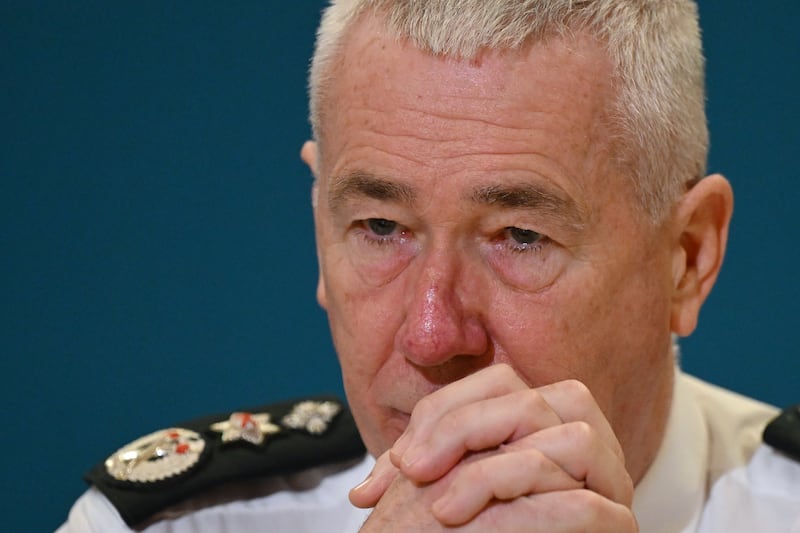On a Friday night in late June, Jane Jermyn was preparing to drive home from a table quiz in the tiny village of Knockanore in Co Waterford when her phone beeped.
Residents at the Lismore House Hotel, where asylum-seeking families where living, had heard a Pakistani woman, who had arrived at the centre with her newborn baby that week, was stranded in Cork city.
“This woman had just had a C-section 10 days before and was brought to hospital that morning by ambulance because she was in pain and her wound wasn’t healing,” says Jermyn, chairwoman of the group Lismore for All. “She was then left to find her own way home with a tiny baby in the middle of the night.”
Jermyn and her friend drove the hour to the Cork University Hospital emergency department before driving another hour back to Lismore in Co Waterford.
READ MORE
“She was exhausted when we picked her up – she had very little English and had never met us before,” says Jermyn.
Members of Lismore for All regularly carry out these “rescues” when they bring asylum seekers, often women and children, to and from hospital appointments.
“We have probably given over 100 lifts to pregnant women – it’s three buses from Lismore to Cork or Waterford hospitals. You can’t do that when you’re pregnant. We’ve got a rota set up now.”
The group also established an English-language conversation group and a six-week career clinic, and helped asylum seekers get involved in the local Tidy Towns initiative. The group is voluntary, although members do sometimes spend their own money on events and clothes or toys for the children.
Lismore for All was established in spring 2023 following pushback against the accommodation of asylum seekers in the local hotel.
It is just one of scores of volunteer and community groups that have sprung up across Ireland in recent years in response to the increase in asylum seeker arrivals and anti-immigrant protests.
In north Cork, a similar group was set up after an International Protection and Accommodation Services (IPAS) centre opened in November 2023.
The decision to house nearly 60 people in a former B&B deeply divided the town of Fermoy, with locals protesting for and against the arrival of asylum seekers.
The group “came about out of a reaction to the demonstrations and abuse being thrown around outside the centre while coaches were arriving with women and children”, says local activist Chris O’Connell.
“We couldn’t just go home after that so we helped to get school places, to get people registered with doctors. It was all very basic stuff,” she says.
When a second group of asylum seekers arrived earlier this year, Government representatives were much quicker in securing school places and PPS [personal public service] numbers for the new arrivals, says O’Connell. “Sometimes you do feel you’re doing the work of the State.”
“Some things they just can’t do, like befriending people or knowing how training at the local soccer club works. But where we do struggle is helping local people to understand that we have nothing to fear. People are asking for better engagement around housing but what we really need is positive messaging from the Government that these people are not to be feared. The Government is shying away from doing that properly.”
Like other Dublin volunteers interviewed by The Irish Times, she does not feel it’s safe any more to be named “in the national media that we are helping refugees”
In Dublin, supporting asylum seekers has become an all-consuming pursuit for some volunteers. When Phibsboro for All was first established, it aimed to provide a “welcoming environment for migrants and refugees” through local events and outreach programmes in local direct provision centres.
This remit rapidly transformed in July when a group of homeless asylum-seeking men set up camp by the Royal Canal. Members started providing food, water and blankets and opened up their homes so the men could use the toilet and take showers. A small number of households gave some of the more vulnerable men a place to sleep in their spare rooms.
When a group of hooded men arrived at the site yelling racist slurs and threatening violence, Phibsboro for All set up an overnight rota to keep guard over the men.
“We had people in their 70s offering to look after the 2am slot,” says a member of the group, who has asked not to be named. “The power of the intergenerational support was quite remarkable.”
Like other Dublin volunteers interviewed by The Irish Times, she does not feel it’s safe any more to be named “in the national media that we are helping refugees”.
Providing basic supports to new arrivals is not sustainable in the longer term, she says.
“We set up Phibsboro For All to encourage wider inclusion in our community. But when it comes to providing for basic needs – tents, tarps, sleeping bags, food – and providing 24-hour vigilance, which puts our safety at risk, that’s definitely not what we’d expect to do.
“That’s where the State needs to be more proactive. There’s been an over-reliance on community groups without recognition that the threat of attack from far-right groups is exposing us to danger.”
In south Dublin, many volunteers who helped homeless asylum seekers in spring and early summer have pulled back “because they’re afraid”, says a member of the IPO – asylum seekers help group.
“There’s aggressive speech. There’s shaming and cameras in your face all the time. So there’s probably only six of us left regularly rotating the camps,” says the volunteer. The group’s goal is “keeping the men warm and dry”.
“It’s very basic: we just want them to make them feel someone cares about them.”

A member of East Wall for All says the group is dedicated to providing community engagement with asylum seekers but volunteers “shouldn’t be buying toothpaste, hot water bottles and soap for residents”.
Some “feel we are doing work and putting in hours that people should be paid for because the Government don’t want to take responsibility”, she says.
“Groups are filling in the gaps that the Government has created, and they are delighted to wash their hands of it,” she says, adding that community leaders should be funded to work with Government officials on integration plans.
Late last year, Minister of State for Integration Joe O’Brien launched a public consultation to inform a new national migrant integration strategy.
The Government says the strategy will be published in mid-2025 and that consultations with migrant communities are ongoing. However, without a national policy, there is “no Government guidance on what integration actually means”, says a volunteer and youth worker based in Cork.
At present, integration funding and resources are allocated in a “chaotic way” with “no one person looking at where integration money is being awarded”, she says.
Integration is a “two-way street” and its success depends “as much if not more on the attitudes of host communities”, she says, adding that the protests have stopped in her own town “but there’s still an uneasy peace and tension”.
The State’s integration policy must “tackle the hateful narratives because that’s what’s tearing this country apart”.
A spokesman for the Department of Integration says it is “reviewing its approach to funding for integration to see where improvements might be made”.
Asked about the additional supports provided by volunteer groups to asylum seekers, the spokesman says agreements are in place with four homeless charities in Dublin to provide “hot meals, showers, places to charge devices and rest”. Some of these have extended their opening hours to assist those without accommodation, he adds.
The department is “working hard to find, develop and open suitable accommodation sites, so that we can offer appropriate and safe accommodation to all people applying for international protection”.
Asked about community engagement, the department notes that its engagement team has been extended in 2024 and is “working to improve the flow of information about new and existing accommodation centres”.
A web page, which is updated weekly, ensures people can access “trusted, factual information at a time when misinformation is a feature of online content on this topic”.
The department will also place adverts in local newspapers and online in the coming weeks to ensure people can “keep up to date on our plans and progress”, says the spokesman.
- Sign up for push alerts and have the best news, analysis and comment delivered directly to your phone
- Join The Irish Times on WhatsApp and stay up to date
- Listen to our Inside Politics podcast for the best political chat and analysis



















